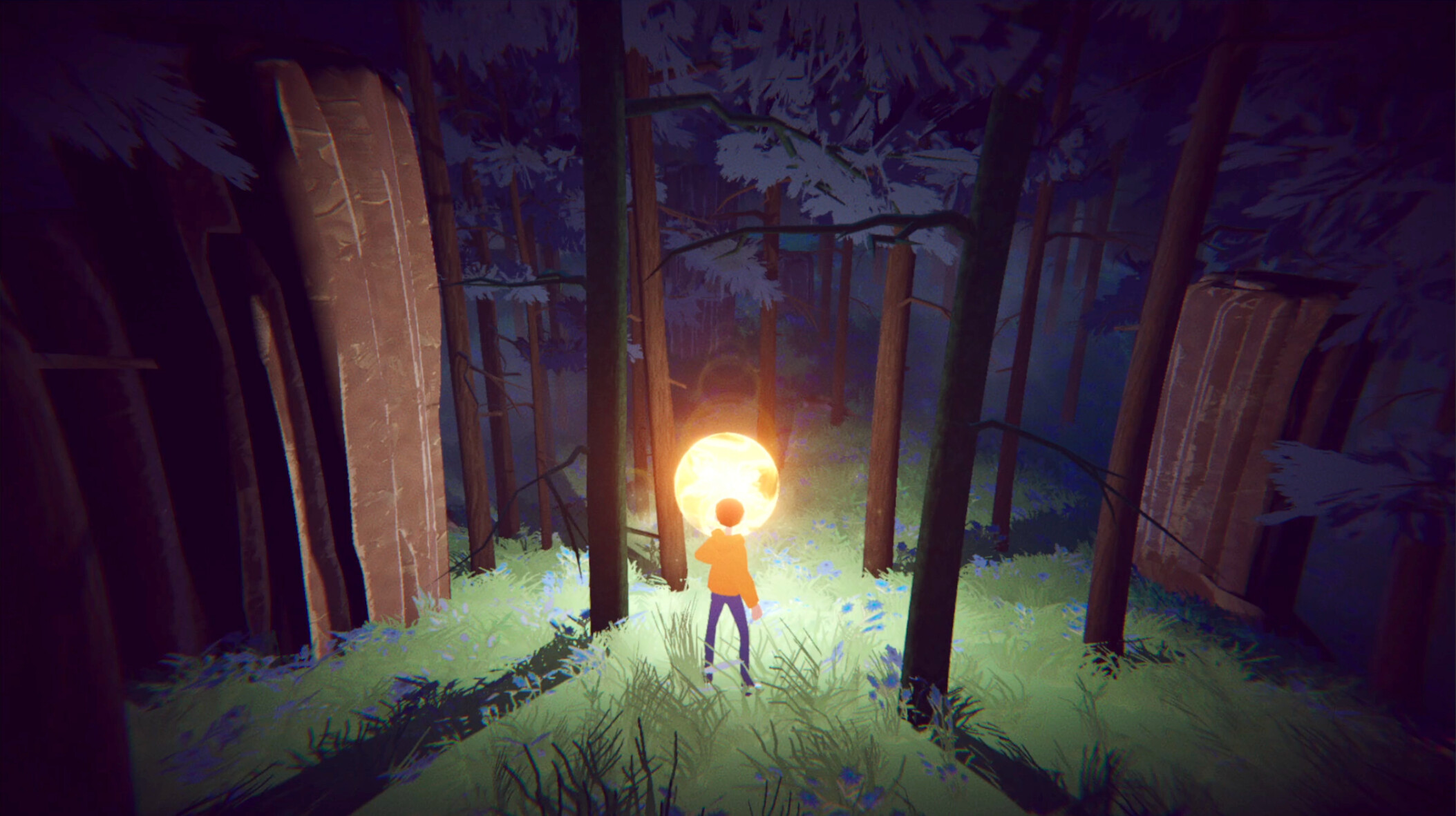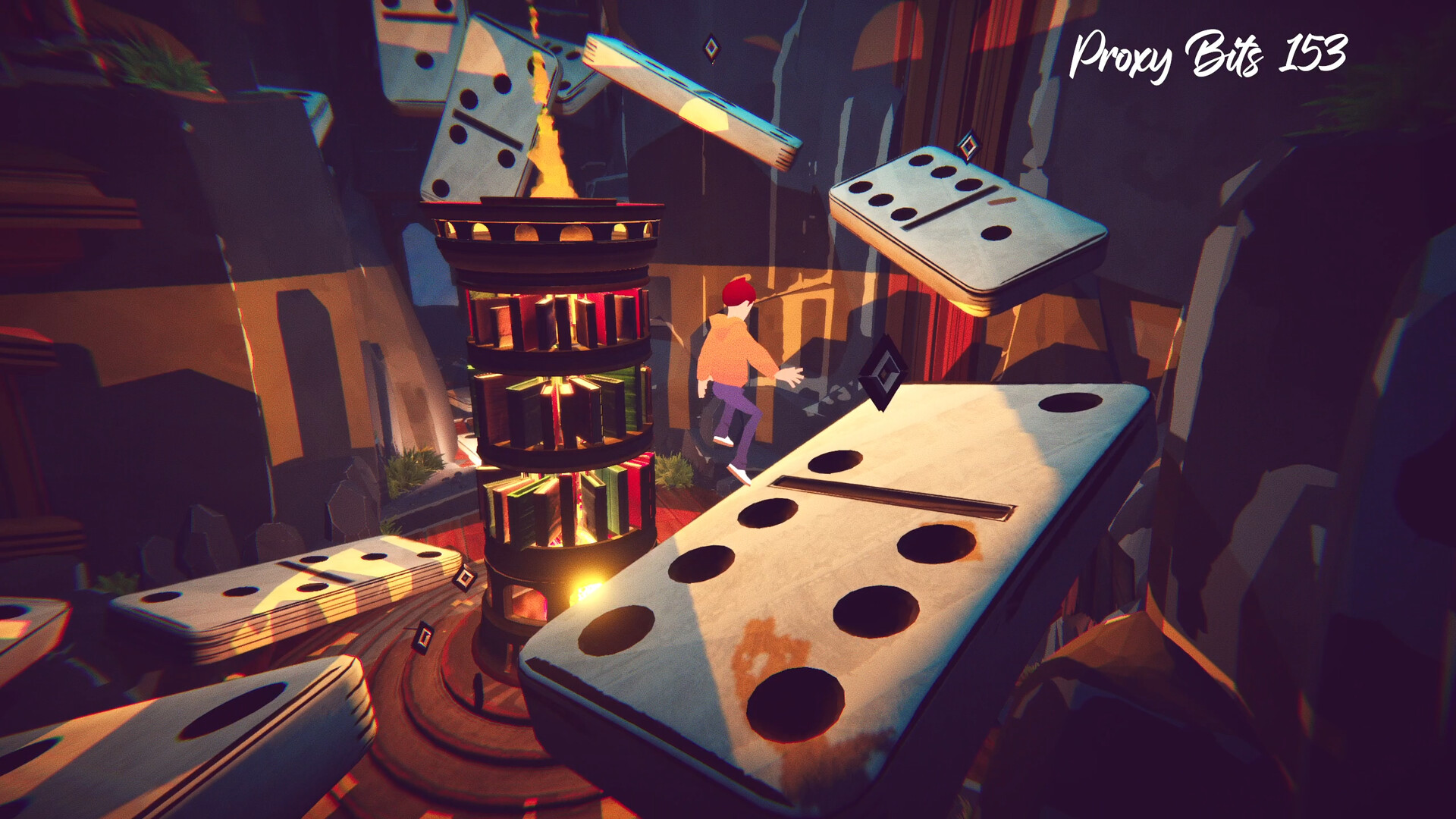Preview: Always in Mind – An exploration based coming of age story about coming to terms with loss
There is something about a good coming-of-age narrative that always resonates with me. Following a young character’s adventure through a turbulent time, discovering their thought process bit by bit, and being part of their journey of self-discovery brings me a lot of joy. Inevitable Studio promises all that with its debut title, Always in Mind, a surreal story about why true change comes from within, told via exploration-based gameplay and accompanied by gorgeous visuals.
The demo starts off right at the beginning of chapter 4, giving the player an in-media res entry into the game. Thanks to the quick summary given at the start, as well as additional information from their website, I found it relatively easy to quickly piece together that I was playing 12-year-old Teddy, who has fallen into a coma after an accident and is now discovering his and his family’s past by exploring his mind’s inner landscape. This is made possible by an AI his mother has left him behind named Proxy, who is now guiding him through his escape and gives him insights on different family members. The focus in the demo is on Teddy’s grandfather, who we quickly realize was struggling to come to terms with his fading memory, which left a big impact on our protagonist. The story Always In Mind wants to tell has great potential to be moving and highly emotional by touching on subjects such as dementia and loss.
In just under an hour, the player is left to explore a variety of different environments.
There is a forest, a mountain range surrounded by clouds, a toy box, and a library with a domino staircase, which symbolize the protagonist’s and his grandfather’s memories. The core gameplay consists of finding scattered scenes and paintings throughout the levels, which are always accompanied by voice lines to give the player more insight into the characters. To obtain these, the player is left to adventure through the different levels and clear various platforming challenges to progress further in the story. You are also encouraged to look for collectible “bits” that let the player unlock outfits. I loved the distinctive art style in this title and found it to be a perfect fit for what I imagine the inner mind of a young teenage boy would look like.
It was also really nice to see a lot of the storytelling not only relying on the voiced sections of the game, but also utilising the level design itself.
For example, one level was covered in fog and slowly falling apart, symbolizing Teddy’s grandfather slowly losing his memories. There are also a few puzzles scattered throughout, which seem to be more focused on storytelling rather than challenge. Those that I have come across in the demo were linked to various voice lines giving you hints, and utilised the light ball throwing mechanic that is also used to illuminate the surroundings and explore. Throwing that ball was sometimes a bit clunky, as it can bounce off of elements in the environment and change the solution you are inputting, so I look forward to seeing what other puzzle mechanics the full release has to offer.
The movement is fun, and I enjoyed exploring the surreal environments.
There is a fair amount of freedom in which order you complete a level and a lot of little nooks and crannies to find. Going the extra mile to find these are always rewarded with either a collectible or some extra plot details. However, accidentally triggering too many of these voice lines or scenes in a short sequence can lead to some lines either getting cut off or the camera snapping into awkward positions. Most notably, one camera change led to all of my controls being almost inverted for the next section of the demo, which did not feel intentional and made it very difficult to progress through some of the platforming challenges.
All of this, however, did not distract from the lovely OST. The music fit the story and setting well, and did a great job at eliciting an emotional response – but without being overwhelming or distracting from the environment or dialogue.
I also really liked the voice acting for Teddy. Proxy seems to be voiced via text-to-speech software, which I unfortunately found a bit hard to understand at times. Especially with the tone of the game, I would have preferred acted voice lines made to sound more robotic in the mix.
I am also hoping to see some additional accessibility settings in the full release, as the movement made me quite motion-sick. I am also keen to see how the optimization improves, as I could see some lower-end set-ups struggling to run this game, despite the fairly low minimum system requirements listed on Steam.
The Always in Mind demo was short and sweet and touched upon topics close to my heart. I hope more players will enjoy exploring the lovingly crafted environments in the free demo, now available on Steam, while we wait for the full release date to be announced.


